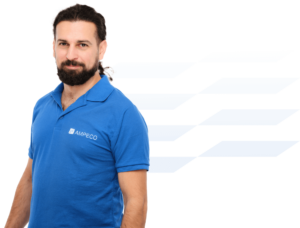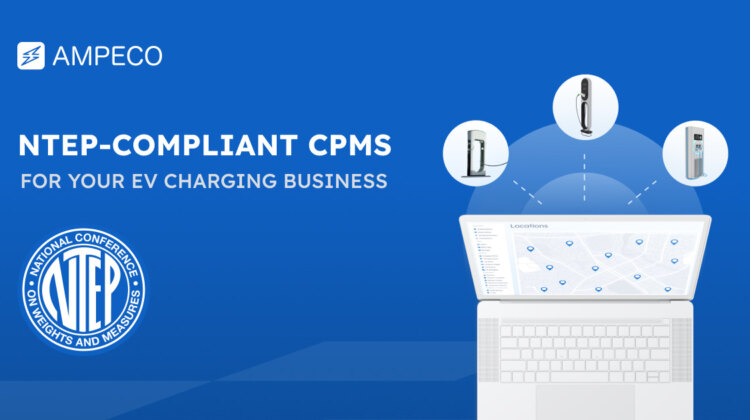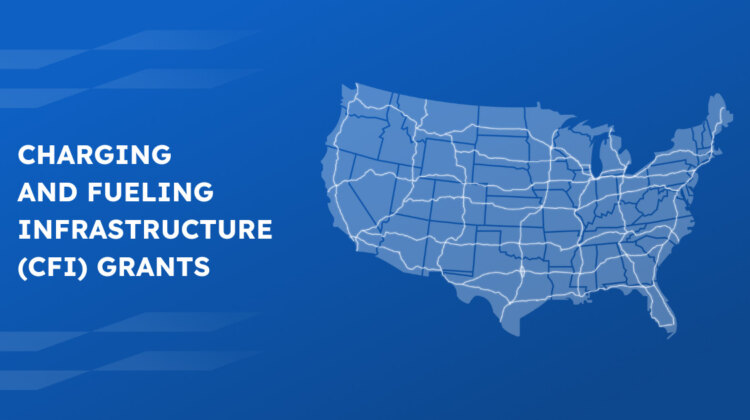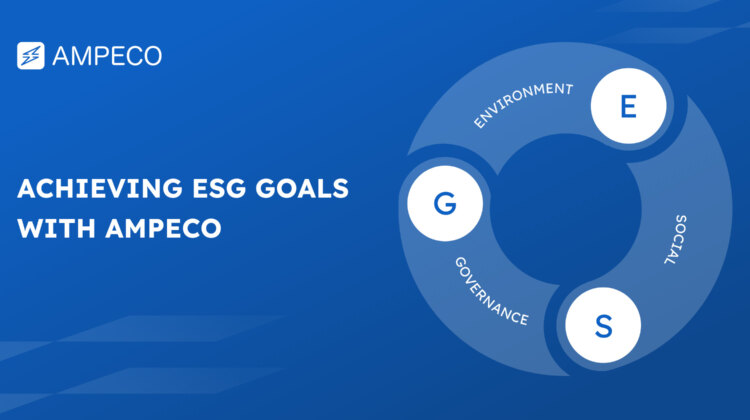The EV revolution is in full swing, and California is at the forefront of driving this sustainable transportation shift. The California Electric Vehicle Infrastructure Project (CALeVIP) is a crucial part of the state’s plan to efficiently and equitably electrify the transportation sector and reduce pollution that harms the environment and human health.
CALeVIP 2.0 has introduced a game-changing requirement: Open Charge Point Protocol (OCPP) certification for charging station equipment. We will explore the significance of this requirement, its impact on the EV charging ecosystem, and how AMPECO can assist in navigating the OCPP certification process. With a track record of testing OCPP functionalities with over 80 hardware manufacturers, we are well-equipped to provide valuable guidance and support throughout the certification journey.
Overview of CALeVIP
By providing financial assistance for installing publicly accessible charging stations, CALeVIP aims to propel the EV movement across California.
In 2021, the California Energy Commission (CEC) awarded CSE a second grant called CALeVIP 2.0 to continue their work on EV charging infrastructure with an emphasis on:
- Installing high-speed DC fast chargers: In recognition of the evolving needs of EV drivers, CALeVIP 2.0 strongly emphasizes high-speed DC fast chargers, supporting an exceptional charging experience.
- Equitable Access to Charging Infrastructure: CALeVIP 2.0 ensures equitable access to charging infrastructure by allocating 50% of its funding to low-income and disadvantaged communities.
- Priority for Pre-Planning: Time is of the essence, so priority will be given to applicants who have already engaged in pre-planning, expediting charger deployment.
OCPP certification requirement
Under the CALeVIP 2.0 eligibility criteria, DC fast chargers must utilize an open standard protocol, such as OCPP, to facilitate network interoperability. As part of its commitment to the interoperability of California’s EV charging infrastructure, the California Energy Commission uses OCPP certification to ensure that EV charging equipment installed under CALeVIP is open and accessible. All eligible CALeVIP 2.0 DC Fast Chargers (DCFC) must provide proof of OCPP certification before being added to the CALeVIP Eligible Equipment list.
The effective dates for the following DC fast chargers requirements planned to go into effect on July 1, 2023, have recently been extended to January 1, 2024. Applications received after these dates will be required to adhere to the listed requirements.
| Requirement | New Effective Date |
|---|---|
| DCFC Energy Star Certification (for charger models up to 350kW) | January 1, 2024 |
| OCPP 16 or later Core (Subset) & Security certifications* OR OCPP 2.0.1 certification proof of payment OR OCPP 2.0.1 test tool report showing compliance for Core & Security | January 1, 2024** |
| OCPP 2.0.1 Core & Security certification* | January 1, 2025 |
* EVSE models must be certified to be eligible for CALeVIP funding. There are no current requirements for the certification of software used by the charging stations management system.
** Manufacturers that enroll 1.6 certified equipment on or before January 1, 2024 may request an extended July 1, 2025 certification deadline for OCPP 2.0.1
Impact on the EV charging ecosystem
The OCPP certification requirement introduced by CALeVIP 2.0 has significant implications for the EV charging ecosystem. It ensures adherence to common standards, promoting interoperability and seamless communication between charging stations and management systems.
This regulation has two key impacts:
- It enhances the reliability and efficiency of EV charging networks by enabling meaningful information exchange among different charging systems, ensuring safe and efficient grid operations.
- It drives standardization in the EV industry, establishing a common language and protocol for communication. This streamlines the development and integration of new charging technologies and software, fostering innovation and advancing the EV charging ecosystem.
Application for hardware manufacturers
This new requirement mandates that hardware manufacturers undergo the certification process administered by the Open Charge Alliance (OCA). It’s worth noting that this certification procedure can span multiple weeks or even months, so it’s crucial to plan accordingly.
As a trusted partner, AMPECO collaborates with over 80+ OCPP-capable hardware vendors. The process for getting charging hardware included in the CALeVIP Eligible Equipment list involves several steps:
- Learn about certification and test procedures
- Fill out the Protocol Implementation Conformance Statement (PICS)
- Contact a test laboratory to conduct the certification tests.
- Add the DCFC to the CALeVIP 2.0 EV Charger Eligibility Portal
How AMPECO can help
The introduction of OCPP certification as a requirement for CALeVIP 2.0 marks a monumental step toward achieving a harmonious and interoperable charging infrastructure in California. By embracing this mandate, we are fostering a robust EV ecosystem that benefits drivers and the environment.
AMPECO is committed to ensuring the use of OCPP-capable providers and can help customers navigate the OCPP certification process. As a member of the Open Charge Alliance, AMPECO is well-equipped to provide support and guidance during the certification journey.
At AMPECO, we understand how important it is to stay up-to-date with industry standards like OCPP certification. We work only with OCPP-capable providers and can help our customers who are hardware vendors to navigate the OCPP certification process. As a member of Open Charge Alliance, we can help you get your product certified quickly and efficiently to continue providing top-quality charging solutions for your customers.
Test the OCPP compatibility of your EV chargers with AMPECO
If you’re a hardware vendor looking to get your product certified according to CALeVIP’s new requirements, contact us today! We’ll help you start your journey toward becoming an OCPP-certified hardware manufacturer so you can keep providing reliable charging solutions for your customer. We also invite you to integrate your solutions with us, reinforcing the strength and versatility of the EV charging infrastructure. Together, we can accelerate the transition to sustainable transportation and create a greener, cleaner future for all.
To ensure seamless integration of OCPP in your EV charging stations contact us today.











